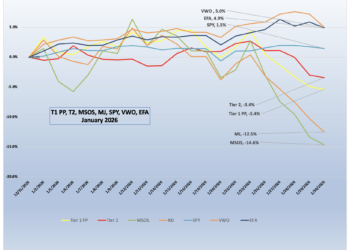Technically, medical use of cannabis is currently legal in the state of Nebraska. Under Measure 437, which was approved by 71% of the voters in November, an adult can obtain a written recommendation from a doctor and “use, possess, and acquire” up to five ounces of the plant to alleviate illness symptoms.
Gov. Jim Pillen reluctantly signed Measure 437 and its companion, Measure 438, into law on Dec. 12. But the voter initiatives remain challenged by two lawsuits filed by a former state official, while bills to enact rules allowing for patient access and a legal market slog through the state legislature with a dim chance of being signed by Pillen. Therefore, a legal market may not start by the end of the year as voters expected.
Crista Eggers, campaign manager for Nebraskans for Medical Marijuana and co-sponsor of the initiative measures, told CRB Monitor News they get questions “all the time” from patients asking about how to get a doctor’s recommendation and acquire medical cannabis. But they have received no direction from the Attorney General’s Office, law enforcement, regulators or doctors.
“It’s a very unique place. Not the best place to be in, really,” Eggers said.
Constitutionality of cannabis legalization challenged
Essentially, John Kuehn a former state senator and the co-founder of anti-legalization group Smart Approaches to Marijuana (SAM), has sued state officials who really don’t want to defend the laws.
The day Pillen signed the proclamations, he and Attorney General Mike Hilgers issued a joint statement saying, “Both the Governor and the Attorney General believe that serious issues remain regarding the validity of these petitions under federal law and the Nebraska Constitution.”
Two days earlier, Kuehn sued Pillen in Lancaster County District Court claiming the initiatives are illegal under federal law. Kuehn has also named the three sponsors of the initiatives: state Sen. Anna Wishart, former Sen. Adam Morfeld and Eggers.
In an amended complaint filed Jan. 10, Kuehn also named as defendants the secretary of state, the chief executive of Health and Human Services, the state treasurer and the tax commissioner. And he added the three members of the Nebraska Liquor Control Commission who automatically became the members of the Nebraska Medical Cannabis Commission under Measure 438, which was approved by 67% of voters.
Kuehn, who is also a veterinarian and former member of the State Board of Health, claims he has legal standing because he’s a taxpayer who is harmed when state tax funds are spent to implement the allegedly illegal laws. He says the measures are constitutionally pre-empted by federal law, namely the Controlled Substances Act (CSA), which classifies marijuana as a Schedule I illegal substance.
When it comes to the cannabis commissioners, Kuehn says Measure 438 violates the Nebraska Constitution’s supremacy clause and nondelegation doctrine by extending broad regulatory authority to the commission over the “possession, manufacturing, distribution, delivery and dispensing” of medical cannabis.
While Attorney General Hilgers is defending state officials, he is not representing the commissioners. That is likely because he has already threatened, in court filings and before the Nebraska Legislature’s General Affairs Committee, to file a lawsuit if the commission starts licensing businesses.
“Even assuming Kuehn’s suit raises a matter of great public concern, he cannot show that he is the best suited plaintiff because the Attorney General has clear legal authority — and has pledged — to bring a lawsuit challenging the constitutionality of the Measures himself,” said Acting Deputy Solicitor General Zachary Pohlman in a March 28 brief in support of dismissing the case against the state officials.
The commissioners’ attorney is Jason Grams of Grams Law, who represented the Nebraskans for Medical Marijuana campaign in a legal challenge to similar initiatives in 2020 that were ultimately removed from the ballot.
In a brief to support a motion to dismiss the commissioners – Bruce Bailey, Harry Hoch and Kim Lowe – Grams said, “Kuehn knows he has a legal standing problem – in fact he pleads it.”
Grams says in the motion that Kuehn lacks standing as a taxpayer because tax funds haven’t been appropriated to the cannabis commission, therefore his claim is not ripe. As of Jan. 10, the commissioners haven’t taken any action to carry out their responsibilities under the measures, including holding meetings and beginning work on licensing regulations.
Kuehn also claims that federal money-laundering statues prohibit the taxation of medical cannabis sales.
“By collecting the sales tax on marijuana sales, state officials knowingly collect taxes on illegal sales under the CSA,” he wrote in the complaint.
Both Hilgers and the attorneys representing the petition sponsors said a preemption issue doesn’t exist when it comes to collecting taxes on federally illegal cannabis.
“Nebraska has taxed illegal sales of controlled substances for over 30 years,” said Wishart, Eggers and Morfeld’s motion to dismiss, filed March 28. “Even the federal government collects taxes on marijuana businesses.”
“The U.S. Supreme Court could not be clearer about a State’s ability to tax illegal conduct: ‘As a general matter, the unlawfulness of an activity does not prevent its taxation,’” said Hilgers in his motion to dismiss. He cited a 1994 case.
Kuehn had already tried once before to stop the initiatives in court by claiming that signatures were fraudulently collected, which should invalidate the ballot measures.
In that case, Kuehn sued Secretary of State Robert Evnen, as well as the initiative sponsors. In a post-trial brief in that case, Hilgers and his then-solicitor general, representing Evnen, clearly expressed their opposition to the ballot measures. Hilgers had filed fraud charges against a signature gatherer and a notary that were later dismissed by a judge.
The 63-page brief filed on Nov. 12 concluded that due to “overwhelming evidence of fraud and malfeasance, an insufficient number of genuine signatures” were submitted, and the court should declare the petitions were legally insufficient and the result of the elections void.
“In the alternative, the Court should find that the Secretary has met his burden of production under Barkley v. Pool and order this case to proceed to phase two of the trial,” it added.
Lancaster County District Court Judge Susan Strong ruled on Nov. 26 that the evidence did not demonstrate pervasive fraud and the petitions were valid. Kuehn then appealed the ruling to the Nebraska Supreme Court, where it remains pending.
Eggers said the sponsors will be filing briefs in that case by the end of April.
Legislature moves forward with one bill
Meanwhile, the state legislature has included funding in a bill to establish detailed regulations to implement Measures 437 and 438.
LB 677 is the only bill out of several that were filed that is moving in committee and was made a priority on March 12. The General Affairs Committee held a hearing March 3.
The bill, filed by Sen. Ben Hansen, would establish the Medical Cannabis Control Fund, which would hold fees, gifts, grants and other money collected by the cannabis commission. The funds would be used toward the administration and enforcement of the Nebraska Cannabis Regulation Act (Measure 438).
A 4% sales tax would be allocated to schools.
Under the voter-approved regulation act, the cannabis commission is supposed to establish application criteria for the “registration” of cannabis businesses on July 1, and registrations are to be granted by Oct. 1.
But under LB 677, those deadlines would be extended to Oct. 1 for rules and regulations regarding licensing, with the first application round occurring between Oct. 13 and Dec. 15 of this year.
The bill would limit licenses to:
- 5 cultivators
- 10 dispensaries
- 5 product manufacturers
- 5 testing facilities
- 5 vertical operations (allowing four dispensaries, one manufacturing facility and one cultivation facility)
- Unlimited transporters
Eggers said Hansen “has been wonderful to work with” and is doing a “wonderful job” trying to strike a balance between opponents and supporters of legalization, but “it’s getting difficult every day.”
She said some senators are trying to add amendments that would heavily restrict the intent of the laws, for example, banning smoking.
They are not voting to legalize it, she said. “That ship has sailed. We’re on to how do we do it.”
Any legislation to change the ballot language would need two-thirds vote to pass, or 33 out of 49 senators. If it gets out of committee, then it would come to the floor for three readings, during which more amendments could be made.
Eggers said, “If it goes to the floor and is not a good bill, we’ll kill it.”
Meanwhile, the medical cannabis commissioners are in a no-win situation. If they don’t act by the July 1 regulation act deadline, they’re subject to lawsuits. If they do start spending tax dollars to license businesses, they will be sued by the state.
Eggers said it’s a “really surreal” situation that ensures more costly litigation. She said the campaign raised $1 million to collect signatures and will probably spend close to the same amount defending the voter-approved laws. She estimates the opposition has spent more than $20 million to try to stop the initiatives.
And despite all the challenges, they haven’t won once, Eggers said. “To continue fighting against the will of the people, I think, is really sad.”
Kuehn’s attorneys and the Attorney General’s Office did not respond to emails seeking comment.












